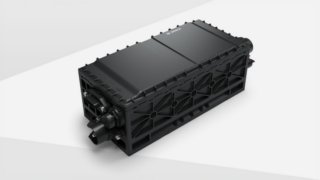Over the past century, the electronics industry has shifted drastically. With 96% of Americans now owning a mobile phone and over 74% owning a computer device (according to Pew Research Centre) – the electronics market is booming. However, have recent events such as COVID-19 taken a turn on the industry?
COVID-19 Affecting the Market
Coronavirus (COVID-19) is an infectious disease caused by a newly discovered virus. The virus first broke out in Wuhan, China in late 2019 and since then has killed almost 3 million people and 188 countries infected. The virus has caused countries such as Spain, France, UK, US and China to halt borders and lockdown. As you can imagine, this has affected the electronics industry in numerous ways – especially as Wuhan is a huge electronics manufacturing location. Within an article from IPC – electronics manufacturers anticipate at least a five-week product shipment delay from suppliers due to the coronavirus epidemic, according to a survey conducted by IPC, a global electronics manufacturing association. The group says shipping delays from China and other countries where the virus has spread are already having negative impacts on manufacturers. However, electronics manufacturers expect delays to be longer than what their suppliers are currently quoting. On average, executives expect shipment delays to be at least five weeks. “The delays will likely have ripple effects for the rest of the year,” said John Mitchell, IPC’s president and CEO. “The longer China is affected by the epidemic, and the more it spreads to other parts of the world, the supply chain will experience more and varied strains and disruptions.”
The virus has already caused many knock-on effects for the global economy. From lengthy manufacturing time frames to fewer sales, there is global fear of the economy slowing down to a halt. According to City A.M, Bank of England governor Mark Carney has said the economic shock from coronavirus “could prove large” but sought to reassure the public that it will “ultimately be temporary”. Stated by Economic Times, coronavirus could cost world $1 trillion. The worrying prospect that the Covid-19 outbreak could become the first truly disruptive pandemic of the globalisation era is renewing doubts over the stability of the world economy.
However, there is a silver lining in every situation. The US and UK Government have called on all manufactures to help make NHS ventilators. The NHS has only 5,000 ventilators and needs another 30,000 within the next few weeks – according to Boris Johnson. This has resulted in small and large manufactures to join forces and produce the breathing equipment to save lives. Stated from Forbes, Tesla engineers have designed a prototype ventilator that uses parts adapted from electric vehicles. Along with this, other organisation such as Honda, McLaren, Mercedes, Ford and Siemens have provided manufacturing support to the government. Honda told the FT it has “identified some potential areas where we may be able to provide support and have communicated this to government”. “We’re calling on the manufacturing industry and all those with relevant expertise who might be able to help to come together to help the country tackle this national crisis” said a Downing street spokesperson. “We need to step up production of vital equipment such as ventilators so that we can all help the most vulnerable, and we need businesses to come to us and help in this national effort.”
Counterfeit Trickling Into the Market
Counterfeit components are a huge threat to electronics market. The counterfeit sector is growing year on year which affects authorised manufacturers producing the real components. It has become necessary for distributors and manufacturers of electronic components to inspect incoming electronic components to ensure they are authentic and are not dangerous. Despite the impressive high-tech minds within this industry, no one has been able to overcome the markets most deceptive challenge: the counterfeit sector. Why do people make counterfeit parts? Most manufactures create counterfeit electronics purely for a higher profit margin. Many manufactures will claim the item is legit and sell it at an authentic rate. According to US Today, a California man tried to import fake computers, which would have been worth $2.6 million if genuine. Counterfeit electronics cause a negative impact on the electronics market due to the fact it affects legit authorised distributors. To prevent counterfeit electronics continuing to seep into the industry, look out for the packaging of the components. Many companies invest in anti-counterfeiting packaging which ensures that their products are legit. The global market for anti-counterfeiting, brand protection and security packaging will reach $3.09 billion in 2019, according to a report from Smithers Pira. Another way to avoid counterfeit electronics would be using authorized search tools. eBOM hosts an ECIA Authorized Search Tool which only presents the part numbers of authorised distributors. This would ensure that you are avoiding the ‘grey market’ and can buy electronics with confidence.
Environmental Issues
Nowadays people are a lot more aware of environmental impacts they have on the environment. So much so that some people will avoid purchasing a product if they know it is from an unethical source which will contribute to climate change. This is also playing an effect on the electronics market. Companies are recognising that most potential customers prefer purchasing products which benefits the environment, rather than polluting it. Mouser Electronics quoted that ‘Mouser has improved its packaging for smaller orders by implementing environmentally friendly packaging. Mouser has significantly reduced the amount of packing material, while still providing quality protection to all products while in transit. Mouser’s new, smaller, lighter packaging has a significant environmental impact by reducing fuel consumption and emissions during transport. Also, by utilizing a material that is both biodegradable and recyclable, we are lowering the amount of waste.’ As well as this, Digi Key has upped their environmental contribution. It is quoted that ‘Digi-Key has implemented numerous recycling & reuse programs for products such as paper, cardboard, plastics, aluminium cans, packing material, batteries, metals, electronic components, hazardous materials, and other materials. Some material is donated to local charity and business. To reduce the landfill impact, Dig-Key’s “Green Mug” program provides all new employees with a reusable mug reducing the amount of single use plastic, aluminium cans, and Styrofoam utilized. Throughout the facility, water bottle refill stations have been installed.’ With Digi Key being one of the largest electronic component distributors globally, this is a great step towards influencing other suppliers / distributors to follow their steps of reducing packaging.
Environmental concerns are shirting the electronics market to become more aware of how they manufacturer, package and deliver components in order to benefit the environment and win over customers. Many large organisations within the market are investing in electric vehicles to deliver their goods. Electric vehicles use a large battery to power the motor and must be plugged in to a charging station rather than filling with petrol / diesel. The benefits of these vehicles are they don’t give on harmful emissions and is cheaper to run than a usual vehicle due to not having to purchase petrol / diesel. Many mail services such as ‘Royal Mail’ have introduced electric vans to distribute their post to lower emissions and reduce the environmental impact – along with being more appealing to customers.
Artificial Intelligence Taking Over
Artificial intelligence is the term used for robotic / machine intelligence. AI within the medical sector has proven successful and reliable – especially in unsettling times like these. According to ‘Sky News Study’, Artificial Intelligence is better than expert radiologists at spotting breast cancer. This results in fewer mistakes made my radiologists and more accurate results for patients. The study found that an AI system developed by Google Health can identify cancer in breast screening mammograms with fewer false positives and fewer false negatives than radiologists. Not only this, according to Business Insider – ‘the US Centers for Disease Control and Prevention has partnered with Microsoft to develop a coronavirus self-checker to help people who are feeling sick determine whether they should go to the hospital to seek treatment.’ This form of AI is an efficient way to alert people if they should go to receive treatment as its cost affecting and prevents physical contact. The chatbot works by asking the patient a series of questions such as their age, location, symptoms etc. AI is shifting the electronics market to become a starter industry and reducing human interaction.
Smart home products are huge within the electronics industry right now. According to Investopedia, over 3.6 million homes have home robots which help with chores such as vacuuming, and cleaning. Not only this, smart speakers such as Amazon Echo and Amazon Home have been growing year or year around 7%. Stated by Statista, the global smart home market revenue was forecast to reach a value of more than 141 billion U.S. dollars by 2023.
Brexit
The United Kingdom held a referendum vote on its relationship to the EU back in 2016. With virtual guarantees that the United Kingdom would remain in the EU – it came as a shock that by a slim margin, more of the public had voted ‘leave’ by a majority of 52% to 48%. The impact of the surprise vote caused lots of uncertainty with UK citizens and has caused industries to become very challenged. According to the Guardian, UK manufacturers’ stockpiling for no-deal Brexit hit record levels. This is because there was a high concern that there would be border gridlock which would slow down the process of transportation of goods globally. The concern of border gridlock was caused by no-deal Brexit which led British manufacturers to increase their stockpiling efforts. Another quote from The Guardian, ‘Britons have spent £4bn stockpiling goods in case of no-deal Brexit’. The Government’s own assessments showed that the flow of goods through the channel crossings could be reduced by 40-60%. AO World, the online electronics retailer, has stockpiled around £15m of its most popular products in the latest move by a UK company to brace for a potentially chaotic Brexit, according to Financial Times. Despite uncertain economic trends, the electronic components industry in the United Kingdom may have seen a positive effect from Brexit. Customers may have panic purchased electronics which would have benefited UK suppliers. In my opinion, I think stockpiling prior to Brexit was a clever move as there was strong uncertainty on how the vote would affect the economy. Some of the products we’re accustomed to having all year round could be harder to come by or cost more to buy. So, it would have been a good idea to buy the items to be sure you have easy access to them and at a good price. However, in my opinion, I also think that this could have affected companies negatively. I believe this because they may have stockpiled high quantities of products and then may have not been able to shift them as much as they would like. This would have resulted in excess stock. However, Brexit is considered to be ‘old news’ due to global awareness of COVID-19. At this rate, I don’t think we will be talking about Brexit anytime soon!
By Amy Leary, Marketing Manager at eBOM.com










